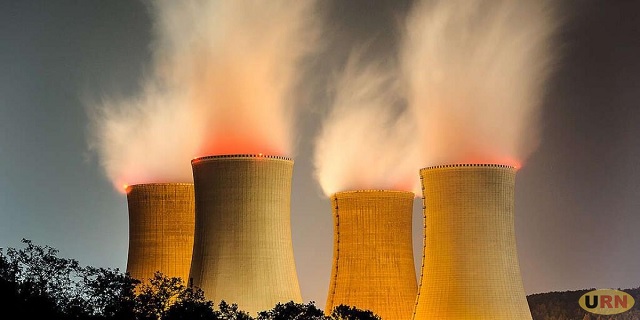
Kampala, Uganda | THE INDEPENDENT | The Ministry of Energy and Mineral Development is set to introduce a new Bill aimed at overhauling nuclear Energy-related laws and regulations in Uganda.
Sabiti Baguma, the acting assistant commissioner for nuclear science and applications at the Energy Ministry told journalists that current law does not cover the latest developments in radiation or atomic energy.
The atomic energy sector is currently regulated under the Atomic Energy Act 2008. The law established the Atomic Energy Council which came into effect following the repeal of the Atomic Energy Act of 1973. The government also came up with Atomic Energy (Security of Radioactive Materials) Regulations 2021 and Atomic Energy Regulations 2012 to guide the peaceful application of nuclear.
It is emerging that with the rapid changes in nuclear energy technology and the energy transition debate, the government of Uganda has to overhaul Atomic Energy Act 2008.
Uganda is a party to the Treaty on the Non-Proliferation of Nuclear Weapons, granting the country the right to use nuclear materials for peaceful purposes such as electricity generation, conducting research, and performing cutting-edge analysis using the research reactor.
Attending the National Stakeholders Workshop on the Atomic Energy Bill this week, Ruth Nankabirwa Ssentamu, the Minister of Energy and Mineral Development, applauded her ministry for engaging all key stakeholders for consultation when generating this bill.
“Starting from the principles, when the principles are wrong, then the bill will be wrong and parliament will turn it around. So, to save us, you must do wide consultations,” Nankabirwa stated.
Furthermore, Nankabirwa acknowledged that the nuclear energy bill attracts a lot of criticism among the population, necessitating a strong legal foundation to achieve its desired objectives.
The minister also mentioned that the government plans to build the first 1,000 MW of nuclear energy in Buyende District by 2031. She also stated that Uganda’s nuclear potential is 24,000 MW, which will contribute to the 52,481 MW Uganda is targeting to generate by 2040.
When asked why Uganda is heavily investing in nuclear energy while other major powers in Europe are shutting down nuclear plants, the minister explained that European countries faced challenges with waste management due to poor planning.
She added that the Act must ensure that her ministry includes provisions on how to handle waste management.
“About Sustainable Development Goal 7, where we would like to see every Ugandan connected to clean power, and you’re ignoring nuclear energy yet the country has a huge potential, where will you get clean energy sources if you don’t exploit nuclear energy?” Nankabirwa added.
She emphasized that Uganda should learn from the Europeans, understand their challenges, and how they have maneuvered to manage them, then develop good technology to handle the prevailing challenges.
Akisophel Kisolo, the chairman of the Atomic Energy Council, pointed out that the Atomic Energy Act of 2008 has helped the country transform in line with the government’s program of industrializing the country and promoting social services to Ugandans.
*****
URN
 The Independent Uganda: You get the Truth we Pay the Price
The Independent Uganda: You get the Truth we Pay the Price




Power plants must pay attention to potential safety hazards, and insulation material protection is definitely indispensable here. FENHAR NEW MATERIAL has rich experience in this area and provides high-quality insulation materials.